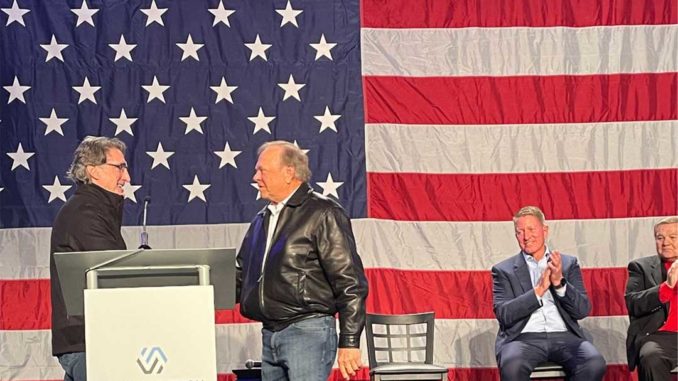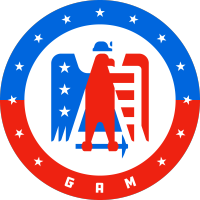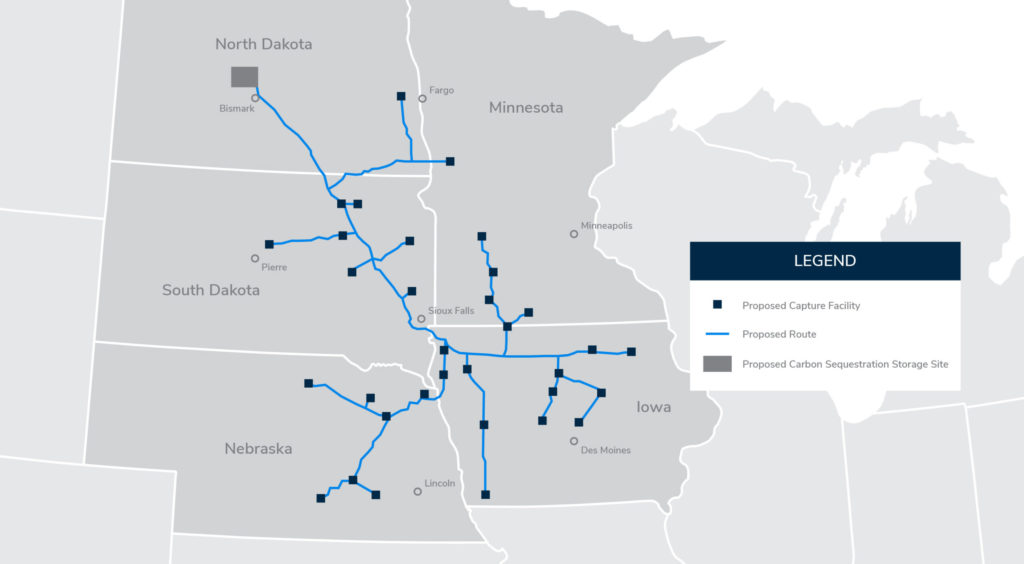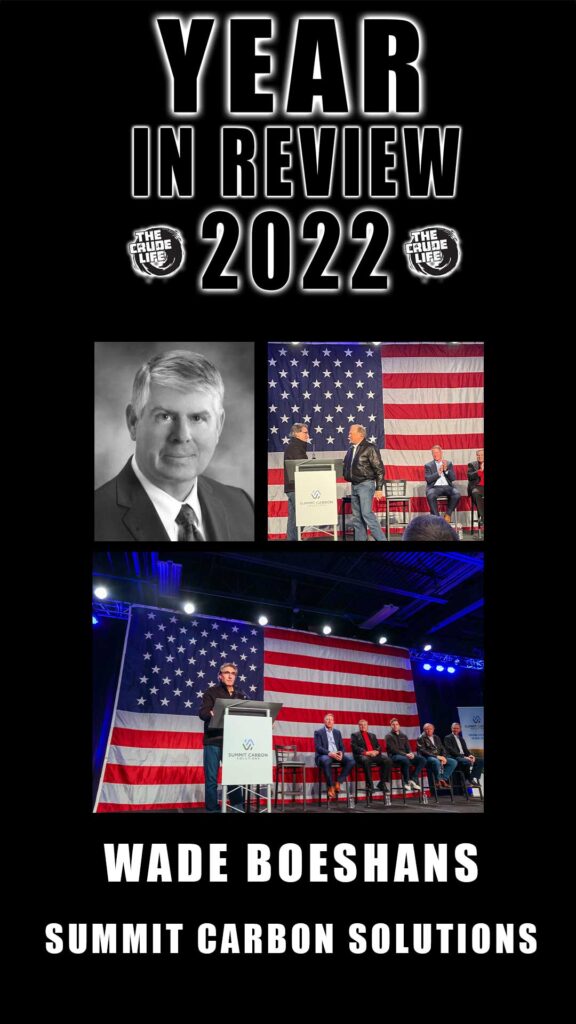

Every December, The Crude Life looks back at some of the year’s best highlights, personality profiles and news nuggets of note. This year, the Year In Review enters it’s 10th year. Here is today’s feature is an interview with Wade Boeshans of Summit Carbon Solutions.
The relationship with agriculture and oil and gas is one that goes back to the foundation of the petroleum industry. Since day one, the two industries have had to co-exist, which is one of the main reasons oil producers call their departments that work with the surface owners “Land Departments”. Like a mission statement in a company, oil’s intention was identified with an evidence marker to remind them of the connection and co-existence.
In fact, The Crude Life’s Jason Spiess asked Continental Resources’ Chairman Harold Hamm in 2013 about his view of the relationship between Agriculture and Energy with new innovations and technology being introduced.
“First of all, those two are the premiere industries of the state and are very important here and we recognize that, especially when working with landowners,” Hamm said to Spiess in 2013. “The ecopad development has been tremendous and the lateral development minimizes surface usage and has worked very well.”
Flash forward almost a decade and we are seeing the same Hamm continuing his environmental innovations in the Bakken oil fields. Only this investment is about transporting carbon by pipeline, not oil.
“It was a significant announcement and investment for us to have Continental Resources invest $250M into the company,” said Wade Boeshans of Summit Carbon Solutions. “It signals the convergence of energy and agriculture around carbon management.”
Boeshans quickly points out the 25-years of experience Continental Resources has with the geology and underground Bakken atmosphere.
“Continental Resources and their deep understanding of the Williston Basin and the geology which is a key component of our project of proposing to capture CO2 from ethanol plants across five states aggregate that CO2 into a pipeline system and deliver it to Western North Dakota for injection and permanent geological storage.”
Continental’s professional history and track record in the Bakken is a value-added asset to Summit Carbon Solutions and the project according to Boeshans.
“This project is purely a capture and sequestration project, it does not involve oil production,” Boeshans said. “Continental, as an oil and gas producing company, recognizes the market opportunity and market demands for lower carbon while ethanol producers and oil and gas producers working towards a common goal of reducing CO2 emissions.”
Several weeks before the $250M announcement The Crude Life Content News Correspondent Ken Lavin interviewed Hamm regarding his recent donations to the Oklahoma State University and University of Mary Bismarck. During that interview, for the first time publicly, Hamm commented that oil companies need to commit to carbon solutions in energy development.
The investment into Summit Carbon Solutions symbolizes how energy companies are becoming all of the above with all the above energy, including the energies in agriculture.
“When you look at Continental and their history as a company, they’ve been leaders in innovation,” Boeshans said. “Starting with horizontal drilling and that technology and what it has meant for developing the resources in the Bakken and North Dakota. From there, multipad wells and continuing to drive increased efficiencies.”
As more and more oil and gas companies look to diversify their portfolios in blue algae, hydrogen, wind and other non-fossil fuel sourced energies, the once carbon storage niche industry is growing into a full on industry.
Although there any many methodologies in the carbon market, Boeshans explains the difference between the two main phrases of the carbon market.
“There are two different acronyms thrown around, first being CCS, which is Carbon Capture and Storage,” Boeshans said. “And then there is CCUS, which is Carbon Capture Utilization Storage. What we are doing in this project is Carbon Capture and Storage.”
Essentially the company will be capturing the CO2 from the fermenters in the ethanol plant, dehydrate it to a liquid, transport it by pipeline and inject it into the geological formations for storage.
“What we have in the Williston Basin that makes it suitable for carbon storage, is thick layers of sand and sandstone one-to-two-miles below the surface with rocks that are high permeability and ferocity with lots of capacity of fluid to be stored within them,” Boeshans said.
After the CO2 is stored a couple miles below the surface, Summit Carbon Solutions monitors the levels to ensure safe protocols are taken and leak prevention.
“There’s several techniques for monitoring CO2, one is through the use of installing subsurface gages for the detection of CO2, monitoring the formations themself,” Boeshans said. “Secondly, is through the use of 3D seismic or other kinds of surface methods where you can actually verify and monitor, and finally you’ll have to continue to monitoring on the injection well bores up and down as well as monitoring the ground water continuously for detection of any CO2 that might show up in there.”
For more information on Summit Carbon Solutions click here
About The Crude Life
Award winning interviewer and broadcast journalist Jason Spiess and Content Correspondents engage with the industry’s best thinkers, writers, politicians, business leaders, scientists, entertainers, community leaders, cafe owners and other newsmakers in one-on-one interviews and round table discussions.
The Crude Life has been broadcasting on radio stations since 2012 and posts all updates and interviews on The Crude Life Social Media Network.
Everyday your story is being told by someone. Who is telling your story? Who are you telling your story to?
#thecrudelife promotes a culture of inclusion and respect through interviews, content creation, live events and partnerships that educate, enrich, and empower people to create a positive social environment for all, regardless of age, race, religion, sexual orientation, or physical or intellectual ability.
Sponsors, Music and Other Show Notes

Studio Sponsor: The Industrial Forest
The Industrial Forest is a network of environmentally minded and socially conscious businesses that are using industrial innovations to build a network of sustainable forests across the United States.
Weekly Sponsor: Stephen Heins, The Practical Environmentalist
Historically, Heins has been a writer on subjects ranging from broadband and the US electricity grid, to environmental, energy and regulatory topics.
Heins is also a vocal advocate of the Internet of Everything, free trade, and global issues affecting the third of our planet that still lives in abject poverty.
Heins is troubled by the Carbon Tax, Cap & Trade, Carbon Offsets and Carbon Credits, because he questions their efficacy in solving the climate problem, are too gamable by rent seekers, and are fraught with unreliable accounting.
Heins worries that climate and other environmental reporting in the US and Europe has become too politicized, ignores the essential role carbon-based energy continues to play in the lives of billions, demonizes the promise and practicality of Nuclear Energy and cheerleads for renewable energy sources that cannot solve the real world problems of scarcity and poverty.

Weekly Sponsor: Great American Mining Co
Great American Mining monetizes wasted, stranded and undervalued gas throughout the oil and gas industry by using it as a power generation source for bitcoin mining. We bring the market and our expertise to the molecule. Our solutions make producers more efficient and profitable while helping to reduce flaring and venting throughout the oil and gas value chain.

Join Podcasters from across the world and all walks of life as they unite to bring civil solutions to life and liberty.

Studio Email and Inbox Sponsor: To Be Announced

Featured Music: Alma Cook
For guest, band or show topic requests, email studio@thecrudelife.com
Spread the word. Support the industry. Share the energy.





